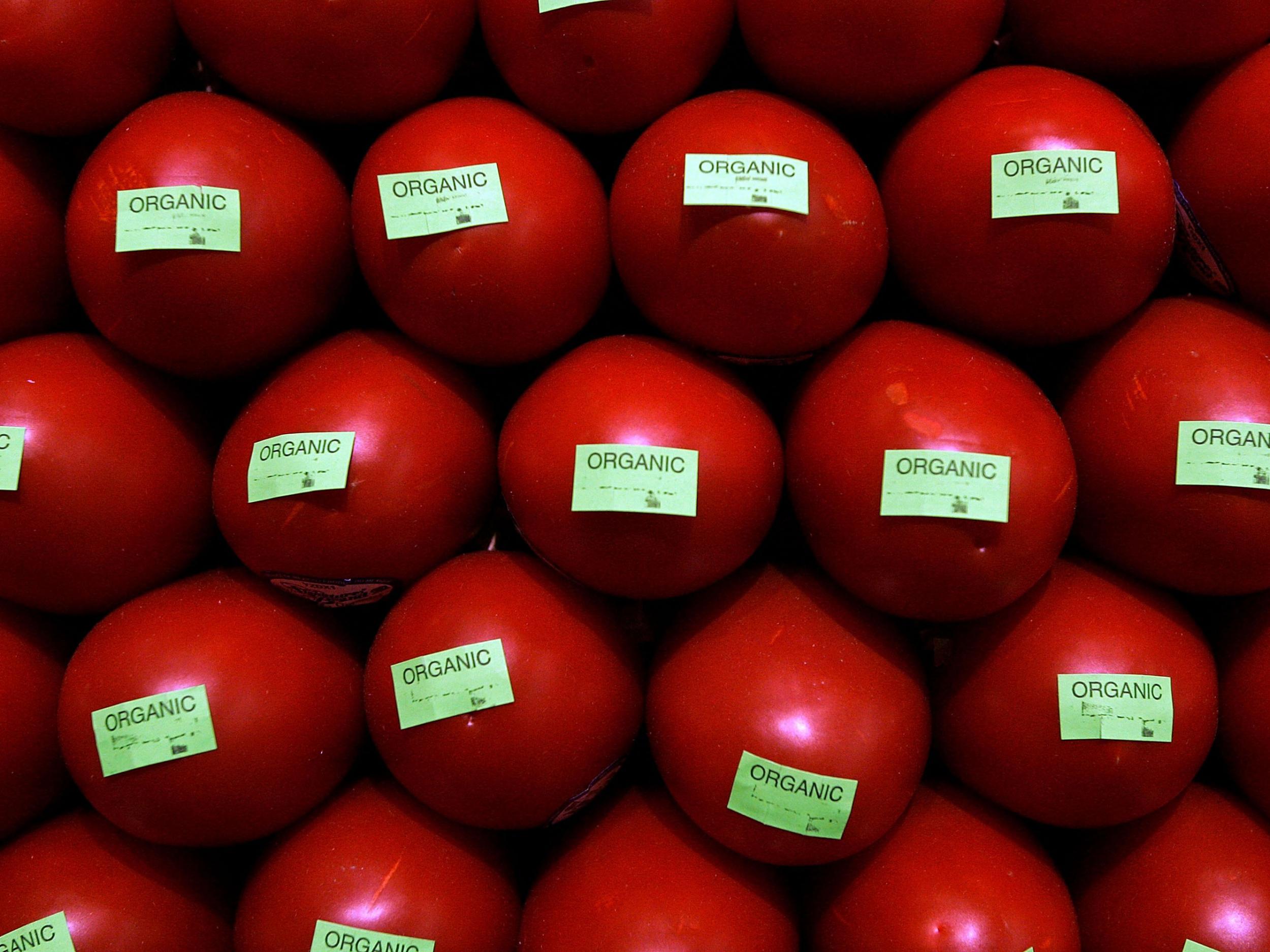Pesticides can cause brain damage and organic food is the future, EU report says
Organic food contains fewer chemicals so may be healthier

Your support helps us to tell the story
From reproductive rights to climate change to Big Tech, The Independent is on the ground when the story is developing. Whether it's investigating the financials of Elon Musk's pro-Trump PAC or producing our latest documentary, 'The A Word', which shines a light on the American women fighting for reproductive rights, we know how important it is to parse out the facts from the messaging.
At such a critical moment in US history, we need reporters on the ground. Your donation allows us to keep sending journalists to speak to both sides of the story.
The Independent is trusted by Americans across the entire political spectrum. And unlike many other quality news outlets, we choose not to lock Americans out of our reporting and analysis with paywalls. We believe quality journalism should be available to everyone, paid for by those who can afford it.
Your support makes all the difference.Eating food with high levels of pesticides has an adverse effect on the brain, according to a review of existing scientific evidence commissioned by the European Parliament.
The MEPs wanted to know whether organic food was healthier than conventionally grown crops and asked experts to look at the relevant research.
A report based on the review said a California study had found that children whose mothers had traces of organophosphate metabolites – the basis for many pesticides – during pregnancy were more likely to have “adverse mental development at two years of age, attention problems at three-and-a-half and five years, and poorer intellectual development at seven years".
Another study calculated that an estimated 13 million IQ points a year are lost as a result of pesticides, which represents a loss of approximately €125bn (£109bn) across the European Union.
The report suggested this figure was likely to be an under-estimation, as it failed to take into account the possible impact of pesticides on diseases like Parkinson’s, diabetes and some types of cancer.
Sarah Mukherjee, Chief Executive Officer for the Crop Protection Association insists that pesticides are “safe”, and tells The Independent: “As the report itself acknowledges, they are only approved after extensive evaluation. Crop protection products are amongst the most heavily regulated products in Europe, taking up to 12 years and costing over £200m to bring an active ingredient to market.
Ms Mukherjee adds: “Year on year the results of programmes monitoring pesticide residues in food show that no consumers are exposed to residues at levels that pose a risk to their health.”
The experts also raised concerns about pesticide regulation. While they undergo “a comprehensive risk assessment before market release … important gaps remain," they said.
"At least 100 different pesticides … [are] known to cause adverse neurological effects in adults and all of these substances must therefore be suspected of being capable of damaging developing brains as well," they added.
Organic food, however, contains low pesticide levels and the “potential risks to human health are largely avoided”.
Professor Ewa Rembiałkowska, of Warsaw University, said: “There are indications that organic crops have a lower cadmium content than conventional crops due to differences in fertiliser use and soil organic matter, an issue that is highly relevant to human health.
"Organic milk has a higher content of beneficial omega-3 fatty acids compared to conventional milk, although we cannot currently derive any specific health benefit from this.”
And Professor Johannes Kahl said: "We find that people who prefer organic food also have overall healthier dietary preferences, including more vegetables, fruits, and wholegrain products and less meat.
"These patterns are also favourable from the perspective of environmental sustainability."
The report concluded that there was a link between organic food consumption and a decreased risk of allergic diseases, as well as potential benefits for overweight or obesity people.
Join our commenting forum
Join thought-provoking conversations, follow other Independent readers and see their replies
0Comments